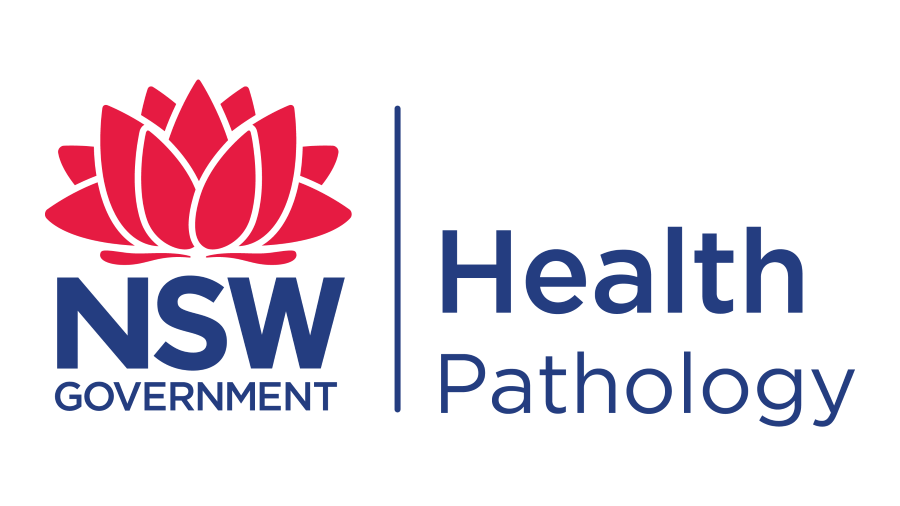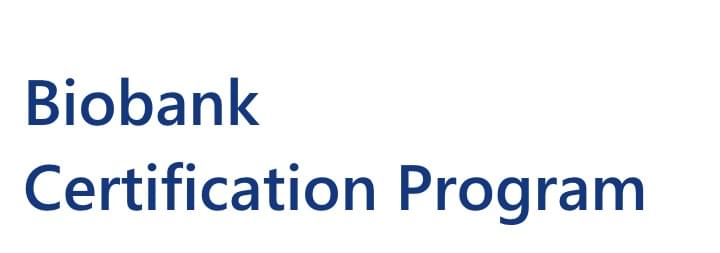Frequently Asked Questions
Biobanking
For the purpose of this website and the NSW Health Pathology program, we focus our attention on "human" biospecimens.
- Identification and consent of participants
- Collection and processing of biospecimens
- Storage of biospecimens and data
- Data and records management
- Release and distribution of biospecimens and data
NSW Biobank Certification Program
| Certification | Accreditation |
|---|---|
| • No formal oversight body required for the Certification organisation | • Requires existence of an oversight body for the Certification organisation |
| • The assessment body observes and judges the product, process or service and gives their written assurance that conformity is met | • Conformity assessment must be formally demonstrated (e.g., lab demonstrates accurate test results on a known standard test sample) |
| Source: Matzke and O'Donoghue et al. BIOPRESERVATION AND BIOBANKING. 10(5) 2012 | |
The NSW Biobank Certification Program aims to improve and harmonise biobanking standards through education and communication of best practices and standard operating procedures (SOPs).
Part of a statewide framework, it aims to enhance the quality of biobanking and help ensure we have a world-class, sustainable approach to managing human biobanks and associated medical research.
Enrolment and Team Members
- Complete the following steps to register the Biobank:
- Complete the Registration Form.
- Complete the online introductory overview education module Basics of Biobanking (Module 1).
- Receive a record of registration and education module 1 completion report.
- Receive access to the best practice standards documents and share these with their biobank team members.
- Complete the following steps to certify the Biobank:
- Invite the biobank team members to create accounts.
- Assign* relevant education modules to biobank team members.
- Complete required* education module(s) including the test(s) at the end of each module.
- Complete a checklist of existing key biobank documentation.
- Ensure biobank team members have completed their required education modules.
- Upload documents for review by the NSW Biobank Certification Officer.
- Submit the Biobank's Declaration of Compliance with best practices.
- Receive a completion of certification and education module completion reports.
- Complete the following steps to register the Pathology Laboratory:
- Complete the Registration Form.
- Complete the online introductory overview education module Basics of Biobanking (Module 1).
- Receive a record of registration and education module 1 completion report.
- Receives access to the best practice standards documents and shares these with their pathology laboratory team members who are involved in biobanking activities.
- Complete the following steps to certify the biobanking activities in the pathology laboratory:
- Invite the pathology lab team members (who are involved in research and/or biobanking activities) to create accounts.
- Assign* relevant education modules to pathology lab team members.
- Complete required* education module(s) including the test(s) at the end of each module.
- Complete a checklist of existing key pathology lab documentation.
- Ensure team members have completed required education modules.
- Upload documents for review by the NSW Biobank Certification Officer.
- Submit the Biobank's Declaration of Compliance with best practices.
- Receive a completion of certification and education module completion reports.
Requirements of the NSW Biobank Certification Program
- Registration:
- To register a biobank/pathology laboratory, the leader must review Module 1: Basics of Biobanking (no test is required).
- Certification:
- To certify a biobank or pathology lab, the biobank/laboratory leader and all team members must complete Module 1: Basics of Biobanking (including the test) as a minimum. Additional education modules are required depending on the type of biobank and biobanking activities conducted as recorded in the registration form. The biobank/pathology laboratory leader may view a list of required education modules for their biobank/pathology laboratory by clicking on the ‘My Biobanks’ tab and then clicking on ‘Certification Status’. The education modules REQUIRED for biobanks and pathology laboratories are outlined in Tables 1 and 2 respectively below.
| Target Accrual (biospecimens) | User | Identifiable data collected? | Leadership | Required Education Modules |
|---|---|---|---|---|
| <200 | Any | Any | Any | Baseline = Biobank leader and all team members must complete Module 1: Basics of Biobanking |
| ≥ 200 | Mono1 | Any | Any | Baseline (see above) |
| ≥ 200 | Oligo2 or Poly3 | No | Individual | Baseline (see above) |
| ≥ 200 | Oligo2 or Poly3 | No | Group | Baseline (see above) and Modules 2, 7 and 8 must be completed by the leader or at least one team member. |
| ≥ 200 | Oligo2 or Poly3 | No | Institution | Baseline (see above) and Modules 2, 3, 4, 5, 7 and 8 must be completed by the leader or at least one team member. |
| ≥ 200 | Oligo2 or Poly3 | Yes | Any | Baseline (see above) and Modules 2-9 must be completed by the leader or at least one team member. |
1Mono biobanks are defined as those with a collection aimed at supporting a specific, single research project.
2Oligo biobanks are defined as those with a collection aimed at supporting several research projects, a research group or a research consortium.
3Poly biobanks are defined as those with collections aimed at supporting undetermined, multiple users with ethics approved research projects, through a defined access/application mechanism.
| Pathology lab staff spin blood/urine/fluid and/or perform DNA/RNA/protein extraction for research? | Pathology lab staff consent participants for research? | Required Education Modules |
|---|---|---|
| No | No | Baseline = Pathology Laboratory leader and all team members must complete Module 1: Basics of Biobanking and Module 10: Biobanking Focused within Pathology Departments. |
| No | Yes/Unsure | Baseline and Module 6 must be completed by the leader or at least one team member. |
| Yes | No | Baseline and Modules 7 and 8 must be completed by the leader or at least one team member. |
| Yes | Yes | Baseline (see above) and Modules 6, 7 and 8 must be completed by the leader or at least one team member. |
- Required education:
- refers to those education modules that must be completed in order for a biobank to be certified. See the FAQ ‘Which education modules are REQUIRED for registration and certification?’ for more information.
- Assigned education:
- refers to education modules that are recommended or ‘assigned’ to team members by the biobank/pathology laboratory leader. The leader assigns relevant modules to staff based on their role and activities in the biobank/laboratory. The leader may insist that their biobank personnel complete these education modules. However, these education modules are not required by the NSW Biobank Certification Program.
- Biospecimen collection and processing standard operating procedure (SOP);
- Biospecimen storage and retrieval SOP;
- Document outlining the biobank’s governance structure;
- Biobank’s ethics approval letter or certificate;
- Obtaining informed consent SOP (unless the biobank has obtained a waiver of consent);
- Biospecimen Access and Release SOP/policy and
- Copy of the currently approved biobank participant information sheet/consent form (if applicable).
- NATA accreditation certificate for the laboratory (if applicable; it is understood that some research laboratories may not be NATA accredited);
- Biospecimen collection and processing standard operating procedure (SOP);
- SOP/policy describing how diagnostic biospecimens are released for research projects/biobanks;
- Pathology laboratory declaration page of the Site Specific Assessment (SSA) form related to governance approval of biobanks (if applicable).
Biobank and Pathology Laboratory Locators
Other Questions
The NSW Biobank Certification Program is a NSW Health Pathology initiative and funded by NSW Health. The goal is to first roll
out and test the program in NSW and consideration will then be given to expand the program nationally.
If you are a biobank or clinical trial with sites in NSW and other states or territories, at the moment only the NSW site may register with the program.
If you are in Australia but outside NSW, please contact us to express interest at NSWPATH-Biobanking@health.nsw.gov.au.
It is anticipated that the program will subsequently be made available for other states and territories but that a fee will be levied
to cover the costs of delivering the program.
- Registration:
- The leader of a biobank and/or pathology laboratory in NSW may register their biobank or laboratory without charge. Registration includes access to education module 1: The Basics of Biobanking.
- Certification:
- See certification for up to date information regarding costs.

